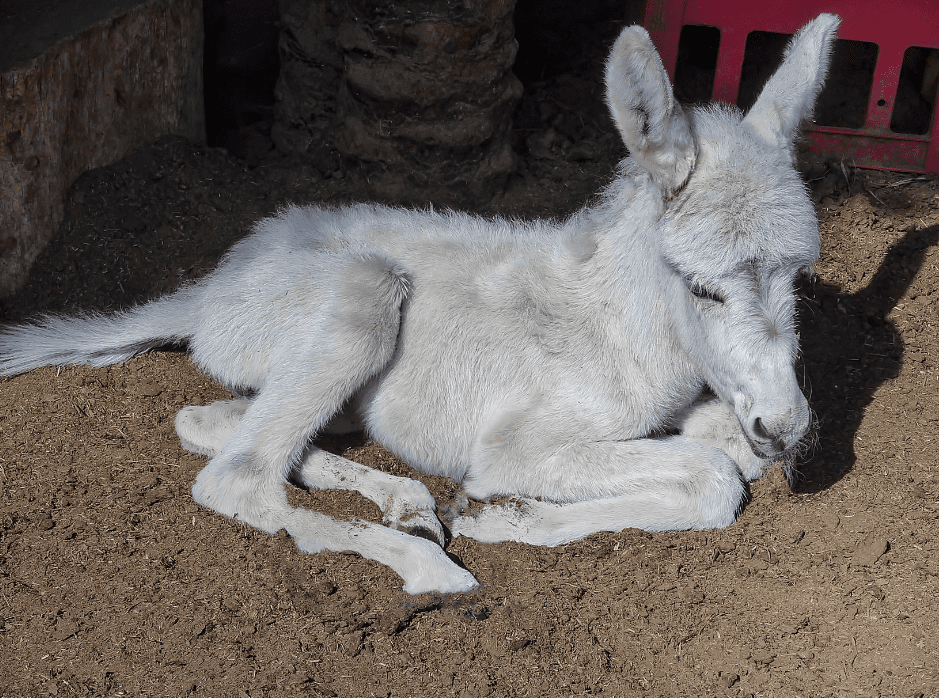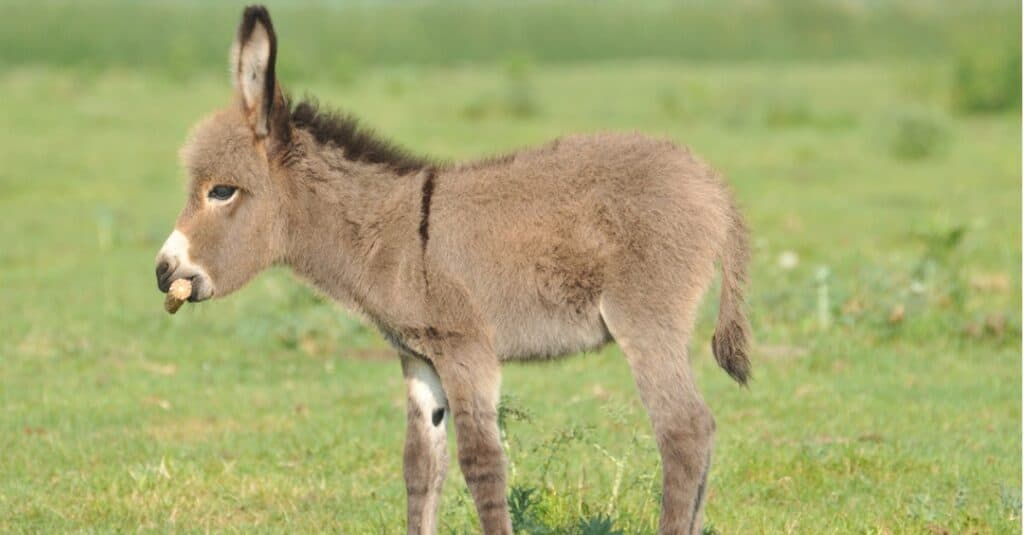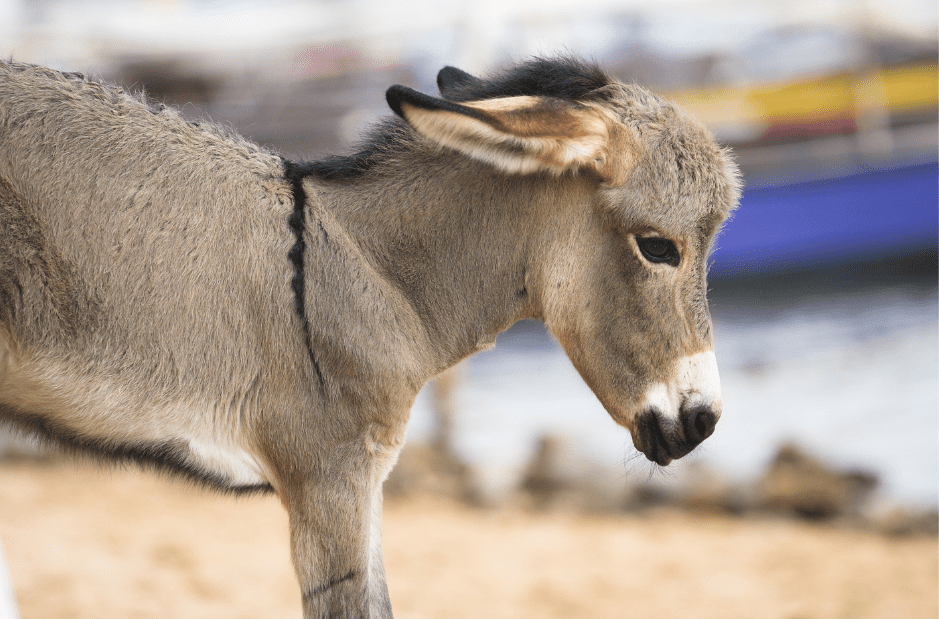Adorable Baby Donkeys: What Are They Called?
What is the proper name for a baby donkey? It's a deceptively simple question with a surprisingly nuanced answer, delving into the rich terminology surrounding these often-underappreciated equids.
The most common and universally accepted term for a baby donkey is, indeed, a foal. This designation applies to both male and female offspring and typically covers the first year of the donkey's life. Just as a baby horse is a foal, so too is the donkey's offspring. This shared terminology highlights the close biological relationship between horses and donkeys, both belonging to the Equidae family. However, the nomenclature doesn't end there. Within the broad category of "foal," further distinctions exist based on age and sex, adding a layer of complexity to the seemingly straightforward question.
| Common Name | Donkey |
|---|---|
| Scientific Name | Equus africanus asinus |
| Offspring | Foal |
| Gestation Period | Approximately 12 months |
| Lifespan | 25-30 years (sometimes up to 50) |
| Other Names | Ass, Burro (Spanish) |
| Reference | The Donkey Sanctuary |
Beyond their first year, young donkeys transition into more specific classifications. A young male donkey under four years old is called a colt, while a young female within the same age bracket is known as a filly. This mirrors the terminology used for young horses, again emphasizing the shared lineage. These distinctions become particularly relevant in breeding and showing contexts, where age and sex play a crucial role in evaluating the animals.
Adding another layer to the donkey lexicon, adult male donkeys are called jacks, and adult females are referred to as jennets or jennies. The term "jenny" is more commonly used in general conversation, while "jennet" often appears in more formal or technical settings. Understanding these terms is vital for clear communication among donkey enthusiasts, breeders, and veterinarians.
Interestingly, the naming conventions for donkeys also incorporate regional variations. The term "burro," for example, is the Spanish word for "donkey," commonly used in the southwestern United States and parts of Latin America. This linguistic diversity reflects the donkey's widespread presence and its integration into various cultures around the world. The term "ass," although sometimes considered less polite, is another widely recognized synonym for "donkey."
The birth of a foal is a significant event, marking the culmination of a roughly 12-month gestation period. While jennets typically give birth to a single foal, twins can occur, albeit rarely. Newborn foals, weighing between 50 and 70 pounds, possess endearing features like long legs, oversized ears, and a remarkably soft, fluffy coat. They are born with a protective soft capsule on their hooves called the eponychium, sometimes referred to as "fairy fingers" or "golden slippers," which safeguards the mother during birth and wears off as the foal takes its first steps.
Foals remain dependent on their mothers for nourishment and protection during their first few months of life. The bond between a jenny and her foal is strong, and the mother plays a vital role in teaching the young donkey essential survival skills. As foals mature, they gradually transition to solid food and develop their social skills through interactions with other donkeys. This early socialization is crucial for their emotional well-being and integration into the herd.
Donkeys are highly social animals and thrive in the company of others. They form close bonds with their companions and can experience distress when isolated. This social nature underscores the importance of keeping donkeys in pairs or small groups, allowing them to engage in natural behaviors like mutual grooming and playful interactions.
From their endearing physical characteristics to their unique vocabulary, donkeys possess a charm that extends beyond their practical value. Whether you call them donkeys, asses, or burros, these remarkable creatures continue to play a vital role in human society, serving as companions, working animals, and a source of endless fascination.
It's worth noting that donkeys are distinct species and not hybrids. While they can interbreed with horses to produce mules (offspring of a male donkey and a female horse) and hinnies (offspring of a female donkey and a male horse), these offspring are typically sterile. The donkey's own lineage traces back to the African wild ass, highlighting its unique evolutionary history.
Donkeys can live for 25 to 30 years, and some even reach the impressive age of 50. Their hardiness and adaptability contribute to their longevity, making them valuable partners for humans in diverse environments around the globe.



Detail Author:
- Name : Anthony Ebert
- Username : sofia32
- Email : genoveva.greenfelder@hotmail.com
- Birthdate : 1987-09-28
- Address : 14289 Cydney Plains Trantowtown, MS 63672
- Phone : +1.774.631.4639
- Company : Nicolas Ltd
- Job : Upholsterer
- Bio : In ut recusandae tempora dolores saepe ut. Eveniet mollitia maiores eaque est voluptas consequatur. Molestiae assumenda sapiente omnis eos eligendi dolorem cum.
Socials
instagram:
- url : https://instagram.com/cristina2440
- username : cristina2440
- bio : Qui natus iure in libero. Soluta dolor quam odit quis. Inventore qui itaque qui esse tempore.
- followers : 6895
- following : 670
linkedin:
- url : https://linkedin.com/in/cristinavandervort
- username : cristinavandervort
- bio : Et aperiam est omnis aut ea earum.
- followers : 3846
- following : 1281